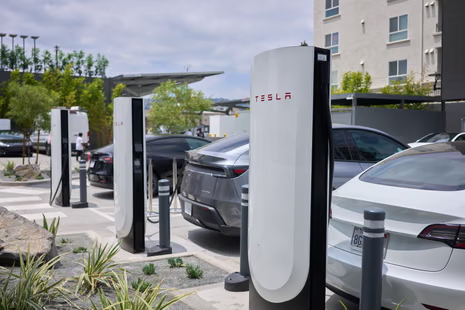In 2023, the landscape of personal transportation is more electrified than ever. According to Bloomberg Green, electric vehicle (EV) sales are projected to surpass 14 million units globally, marking a pivotal shift in consumer preferences. With increasing concerns about climate change and fluctuating fuel prices, the debate between electric vehicles, hybrids, and traditional gas cars is more relevant than ever. In this article, we’ll dive into the latest trends in cost, range, and sustainability to help you decide which vehicle type might be the best fit for your lifestyle.
Main Content
Cost Comparison: EVs, Hybrids, and Gas Cars in 2023
The cost of owning a vehicle goes beyond the sticker price. Let’s explore how each vehicle type stacks up financially:
1. Initial Purchase Price
- Electric Vehicles (EVs): Generally, EVs have a higher upfront cost due to battery technology. However, brands like Hyundai and Nissan are offering competitively priced models, with the Hyundai Ioniq 5 starting at around $41,000.
- Hybrids: Hybrids serve as a middle ground, with models like the Toyota Prius starting at approximately $25,000, making them an attractive option for budget-conscious buyers.
- Gas Cars: Traditionally the cheapest option, gas cars continue to dominate in terms of initial lower costs, often starting as low as $15,000 for compact models.
2. Operating Costs
- Fuel and Energy: EVs boast the lowest operating costs due to cheaper electricity rates compared to gasoline. According to the IEA, charging an EV costs around 50% less per mile than fueling a gas car.
- Maintenance: EVs have fewer moving parts, leading to reduced maintenance costs. Hybrids, while more complex than gas cars, still benefit from lower maintenance costs due to reduced engine wear.
Range and Performance: How Far Can You Go?
Range anxiety is a common concern for potential EV buyers, but how do the different vehicle types compare in 2023?
- Electric Vehicles: Thanks to advancements in battery technology, the average range of EVs has increased significantly. The Tesla Model S boasts a range of over 400 miles on a single charge, while more affordable options like the Nissan Leaf offer around 240 miles.
- Hybrids: Hybrids offer the convenience of gasoline refueling combined with electric efficiency. The Toyota Prius Prime, for example, provides an electric range of 25 miles with a total combined range of about 600 miles.
- Gas Cars: Gas cars typically offer a range of 300 to 400 miles per tank, depending on the model and fuel efficiency.
Sustainability: Driving Toward a Greener Future
The environmental impact of your vehicle choice is a key consideration. Let’s see how each type fares in terms of sustainability:
- EVs: These vehicles produce zero tailpipe emissions, significantly reducing air pollution. However, the sustainability of EVs depends on the electricity source; renewable energy usage enhances their eco-friendliness.
- Hybrids: While hybrids do produce emissions, they are typically lower than those from gas cars due to their ability to operate in electric mode at slower speeds.
- Gas Cars: Despite improvements in fuel efficiency, gas cars remain the least sustainable option due to their reliance on fossil fuels and higher emissions.
Practical Tips: Making the Right Choice
When considering your next vehicle purchase, keep these tips in mind:
- Charging Infrastructure: Evaluate the availability of charging stations in your area if considering an EV. Companies like Tesla and Electrify America are rapidly expanding their networks.
- Lifestyle Needs: Consider your driving habits. If you frequently take long trips, a hybrid or gas car might be more convenient.
- Incentives and Rebates: Look into government incentives for EVs and hybrids, which can offset the initial purchase price.
Conclusion: Navigating the Road Ahead
As we navigate the roads of 2023, the choice between EVs, hybrids, and gas cars is increasingly influenced by personal priorities and societal trends. While EVs represent the future of sustainable transportation, hybrids offer a practical transitional solution, and gas cars remain a budget-friendly option for many. Which path will you choose? Share your thoughts in the comments below. As technology advances and infrastructure improves, the landscape of personal transportation will continue to evolve, promising an exciting journey ahead.
This engaging, informative article aims to provide a comprehensive overview of the current trends and considerations in choosing between electric, hybrid, and gas vehicles in 2023, ensuring readers are well-equipped to make informed decisions.

